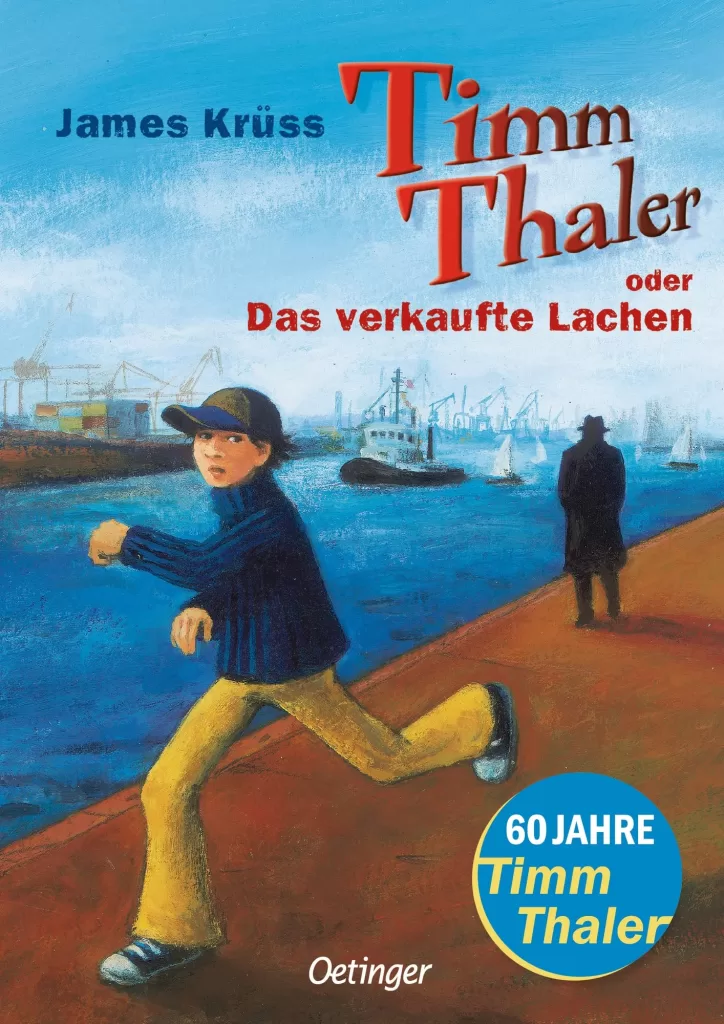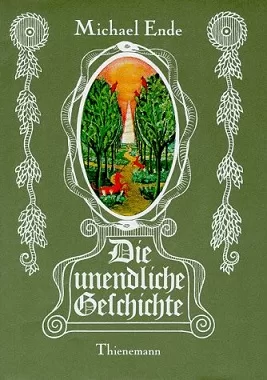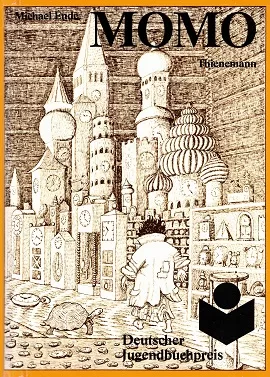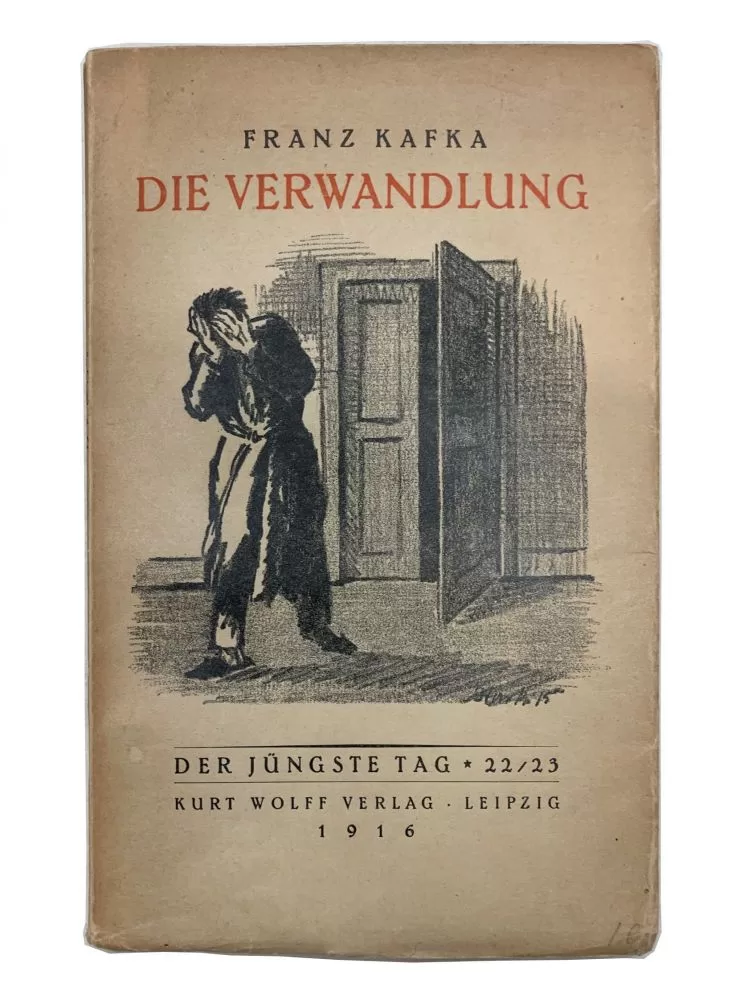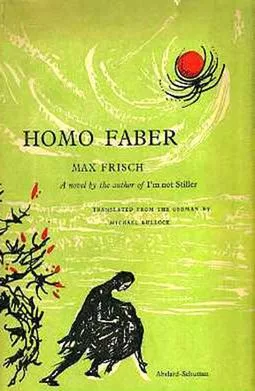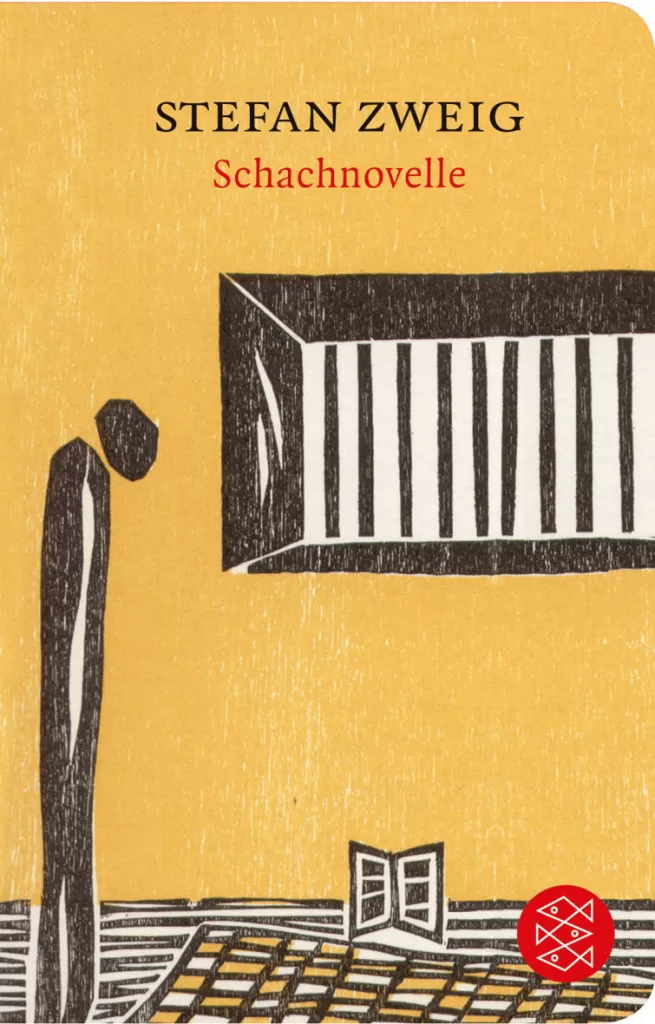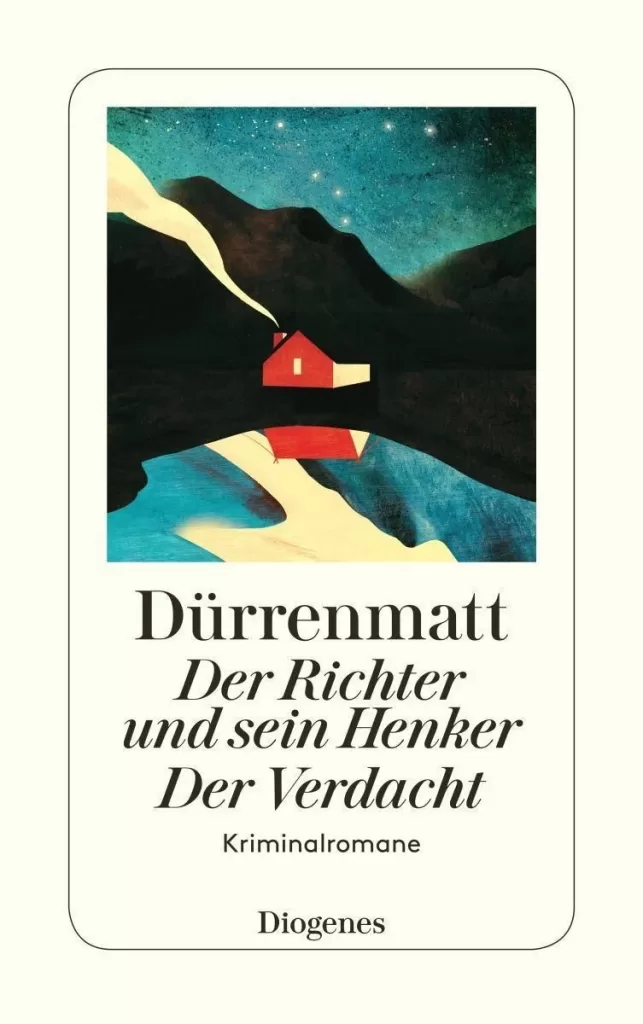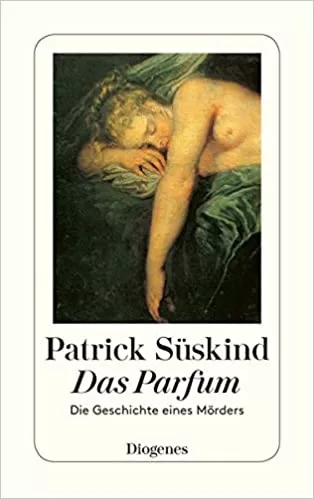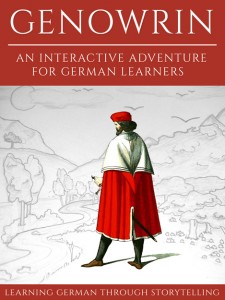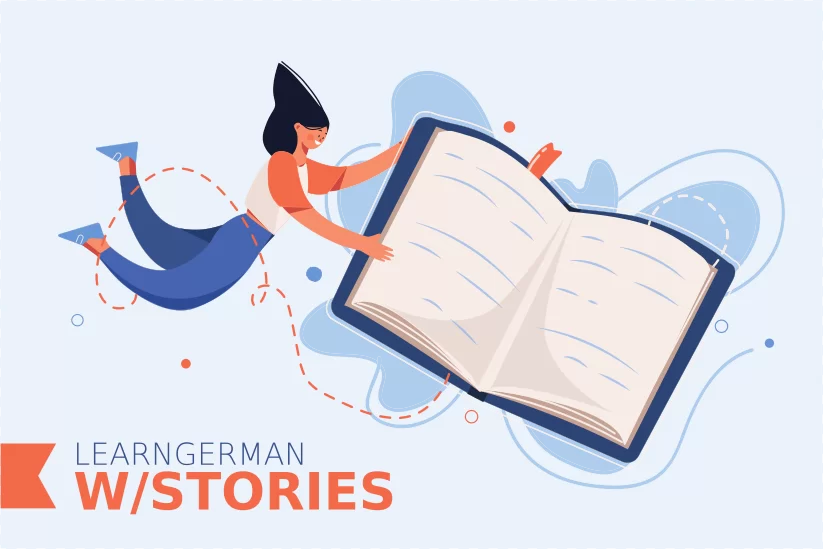
- German Novels (Not Just) For Kids
- Timm Thaler oder Das verkaufte Lachen – James Krüss (1962)
- Die unendliche Geschichte – Michael Ende (1984)
- Momo – Michael Ende (1973)
- Classic German Novels (And Novellas)
- Die Verwandlung – “Metamorphosis”, by Franz Kafka
- Homo Faber. Ein Bericht, by Max Frisch
- Die Schachnovelle – “The Royal Game”, by Stefan Zweig
- Der Richter und sein Henker – “The Judge and His Hangman”, by Friedrich Dürrenmatt
- Das Parfum. Die Geschichte eines Mörders – “Perfume: The Story of a Murderer”, by Patrick Süskind
- How To Get German Novels For Free
Reading German novels may sound daunting for beginners and intermediate learners, but it’s a highly effective method of deepening your grammar sense and acquiring new vocabulary. After all, learning German with textbooks and worksheets only gets you so far. Sooner or later you’ll need to start putting the pieces together by speaking to people, watching German movies, reading blogs and newspapers or German short stories.
Once you feel comfortable reading shorter pieces, it’s time to progress to book-length reading materials. Today, I’d like to present eight German novels and novellas which are both engaging but still relatively easy to read for beginners and intermediate German learners.
Many of these were also adapted into movies, TV series or radio plays. I’ve linked these and other resources whenever available.
German Novels (Not Just) For Kids
First of, let’s take a look at some classic German novels for children and youth which I think may still be interesting for adult readers. Many of these works make do with shorter sentences and a generally more straightforward syntax, so they can be a solid entry-point into reading full-length books in German.
Timm Thaler oder Das verkaufte Lachen – James Krüss (1962)
Timm Thaler oder Das verkaufte Lachen (Timm Thaler or the sold laughter) is a 1962 children’s novel by German author James Krüss. It tells the story of a boy who trades his laughter to a wealthy Baron in exchange for the ability to win any bet he makes. The popular story was subsequently adapted into a 13-part German children’s television miniseries in 1979, an animated series, movies, and many other adaptations.
Written by James Krüss, Timm Thaler oder Das verkaufte Lachen is a great book for beginner German readers. The language used in the book is simple and easy to understand, with few difficult words or sentence structures. However, there may be some challenging phrases that require a dictionary or a bit of googling.
In summary, this book is a superb option for anyone aiming to enhance their German reading skills. The story is captivating, and the language is easy enough for beginners to grasp while also presenting opportunities to expand one’s vocabulary and practice grammar. With commitment and effort, German beginners can read and relish this book.
![]() Kindle: via Amazon
Kindle: via Amazon
![]() ePub: via buecher.de
ePub: via buecher.de
🔎 Free preview: via mytolino.com
📺 TV series: Youtube
Die unendliche Geschichte – Michael Ende (1984)
The Neverending Story (German: Die unendliche Geschichte) is a fantasy novel by German writer Michael Ende which was later adapted into TV series and films of worldwide acclaim
The novels begins with a lonely boy named Bastian and the strange book that draws him into the mysterious world of Fantastica which is under threat by “The Nothing”. Only a human can save the enchanted kingdom by giving its ruler, the Childlike Empress, a new name. But the journey to her tower is paved with peril, leading past dragons, monster and magical beings. Once Bastian begins his quest, he may never return. As he is drawn deeper into Fantastica, he must find the courage to face increasingly terrifying threats and his own undiscovered truths.
Michael Ende’s Die unendliche Geschichte is a beloved children’s classic, but it may prove to be a challenging book for German beginners to read. The language used in the book is considerably intricate, containing numerous long and intricate sentences as well as a significant amount of unfamiliar vocabulary. Additionally, the author has developed a complex fantasy world, which can be challenging to comprehend without a solid foundation in German grammar and vocabulary.
Due to these factors, it may be more fitting for intermediate or advanced learners seeking to test their German reading skills and enhance their abilities. Nevertheless, beginners can still attempt to read the book and progressively develop their understanding of the story and language with the aid of a dictionary or other language learning resources.
![]() Kindle: via Amazon
Kindle: via Amazon
![]() ePub: via buecher.de
ePub: via buecher.de
🔎 Free PDF preview: via buecher.de
🎬 Movie Trailer (1984): YouTube
Momo – Michael Ende (1973)
Another famous novel by Michael Ende, Momo deals with the concept of time and how it is used in modern society. The full title in German translates to “Momo, or the strange story of the time-thieves and the child who brings the stolen time back to the people”. The book is also simply known as Die grauen Männer (The Grey Gentlemen).
Momo is illiterate and cannot count, and she doesn’t know how old she is. She is famous in the neighbourhood because she has the extraordinary ability to listen. Simply by being with people and listening to them, she can help them solve their problems.
Michael Ende’s Momo is an ideal book for German beginners who aspire to refine their reading skills. The story is captivating and imaginative, and the language used in the book is generally easy to comprehend, with minimal utilization of intricate vocabulary and sentence structures. Ende’s writing style is transparent and concise, making it effortless for beginners to follow the plot without getting lost in convoluted language.
Furthermore, since “Momo” is a shorter book than “Die unendliche Geschichte,” it is a more manageable option for beginners who may feel overwhelmed by a longer and more challenging text. In summary, “Momo” is an excellent choice for German learners looking to practice their reading skills and enhance their understanding of German language and culture.
![]() Kindle: via Amazon
Kindle: via Amazon
![]() ePub: via buecher.de
ePub: via buecher.de
🔎 Free ePub preview: via mytolino.com
🎬 Movie Trailer (1986): YouTube
Classic German Novels (And Novellas)
Next up, let’s have a look at some literary classics. The vocabulary and syntax here is obviously more challenging than in the books presented above. These are by no means books for absolute beginners but instead for those beginning their journey reading the great German classics. (If these are too difficult check out alternative editions of these classics in simplified Germna)
Die Verwandlung – “Metamorphosis”, by Franz Kafka
First published in 1915 and considered one of the most important 20th century works of fiction, this German novella by Franz Kafka is still studied in schools and universities worldwide. Contrary to many older German literary classics, Kafka’s prose is relatively accessible.
Die Verwandlung (The Metamorphosis) by Franz Kafka is a challenging book for German beginners to read. The language used in the book is complex and often difficult to understand, with many long and convoluted sentences and abstract ideas. Additionally, the story deals with complex themes, such as identity, alienation, and isolation, which can be difficult to grasp without a deep understanding of German language and culture.
That being said, Kafka’s writing style is highly regarded and has had a significant impact on German literature, so reading Die Verwandlung can be a valuable experience for intermediate or advanced learners who are looking to challenge themselves and deepen their understanding of German language and culture. However, beginners may want to start with simpler texts and gradually work their way up to more complex works like this one.
![]() Kindle: via gutenberg.org
Kindle: via gutenberg.org
![]() ePub: via gutenberg.org
ePub: via gutenberg.org
![]() HTML: via gutenberg.org
HTML: via gutenberg.org
![]() PDF: via freilesen.de
PDF: via freilesen.de
🎧 Audiobook: Youtube
vocabulary: 1, 2, 3 via Quizlet
Homo Faber. Ein Bericht, by Max Frisch
Published in 1959, this German novel by Swiss author Max Frisch is about a successful engineer called Walter Faber, who prefers facts to feelings, logic to love and empirical data to emotions. He fares quite well with this rational approach to life until he’s faced with a chain of stupefying coincidences that force him to reevaluate his entire worldview.
Written in modern German from a first-person perspective, this novel is a great way to start can be a good starting point for German students interested in full-length reading material which is neither too challenging nor too shallow. Homo Faber is considered a modern German classic and was also made into a movie by German director Volker Schlöndorff starring Sam Shepard.
Homo Faber. Ein Bericht by Max Frisch is a challenging book for German beginners to read. The language used in the book is complex and sophisticated, with many long and intricate sentences and a significant amount of vocabulary that may be unfamiliar to learners. Additionally, the story deals with complex themes, such as fate, identity, and morality, which can be difficult to grasp without a deep understanding of German language and culture.
However, for intermediate or advanced learners, reading “Homo Faber” can be a valuable challenge. The book is a well-respected classic of German literature, and Frisch’s writing style is highly regarded for its literary merit and complexity. While the language may be challenging, the story is engaging and thought-provoking, which can help readers improve their German language skills and deepen their understanding of German culture and literature. Overall, Homo Faber is a great choice for learners who are looking to challenge themselves and expand their knowledge of German language and culture.
![]() Kindle: via Amazon
Kindle: via Amazon
![]() ePub: via bücher.de
ePub: via bücher.de
![]() PDF: Google
PDF: Google
🎧 Audiobook: Youtube
vocabulary: reading comprehension quiz, flashcards via Quizlet
Die Schachnovelle – “The Royal Game”, by Stefan Zweig
This novella, written between 1938 and 1941 in Brazilian exile, is Stefan Zweig’s last and most famous work. At its heart is the confrontation of a Gestapo prisoner with the psychological ramifications of his situation on the background of a passenger steamer full of affluent travelers and their superficial attitude.
The protagonist, Dr B, put in solitary confinement by the Nazis obsesses about chess in order to maintain his sanity. He plays against himself and is developing a split personality which leads to a breakdown. Now officially declared “insane”, he’s released, but when he finds himself travelling on a passenger steamer together with the world chess champion Czentovic, he’s forced to stare into the abyss once again.
The language used in this novella is generally clear and concise, with a limited amount of complex vocabulary and sentence structures. However, there are some more challenging words and expressions, particularly those related to chess, that may require the use of a dictionary or other language learning resources.
![]() ePub: via buecher.de
ePub: via buecher.de
![]() PDF: via stefanzweig.de
PDF: via stefanzweig.de
🎧 Audiobook: Youtube
vocabulary: text comprehension quiz
Der Richter und sein Henker – “The Judge and His Hangman”, by Friedrich Dürrenmatt
Originally published in a Swiss weekly journal as a serial novel between 1950 and 1951, this mystery novel by Friedrich Dürrenmatt is a classical detective story with a crime at its center and a search for the perpetrator.
This German novel is required reading in many German schools, and it’s also appropriate for intermediate German learners looking for suitable reading material, due to its relatively straightforward plot and plain language.
![]() Kindle: via Amazon
Kindle: via Amazon
![]() ePub: via bücher.de
ePub: via bücher.de
![]() PDF: Google
PDF: Google
🎧 Audiobook: Youtube
vocabulary: text comprehension quiz
Das Parfum. Die Geschichte eines Mörders – “Perfume: The Story of a Murderer”, by Patrick Süskind
This 1985 historical/mystery/coming-of-age novel by German author Patrick Süskind is about a murderer with a supernatural sense of smell. Born with no body scent in 18th-century Paris, protagonist Baptiste Grenouille is stalking and killing virgins, hunting for the “perfect scent”.
Translated into 48 languages and sold more than 20 million times, Das Parfum is one of the most successful German novels of the 20th century.
While Süskinds narrative style may sometimes be a bit ornate, this novel can be a good way for German learners to expand their vocabulary without sentence structure and plot being too difficult too follow.
![]() Kindle: via Amazon
Kindle: via Amazon
![]() ePub: via bücher.de
ePub: via bücher.de
![]() PDF: Google
PDF: Google
🎧 Audiobook: Youtube
vocabulary: flashcards via Quizlet
How To Get German Novels For Free
All of the above suggestions are considered literary classics. If you’re looking for more contemporary German novels, find out how to download tons of German novels for Kindle for free onto your tablet, ereader, smartphone or desktop.
Combine these free German ebooks with interactive dictionaries on Android or iOS and you’ll learn tons of new words in no time! Who needs textbooks, anyway?
–
DISCLAIMER: All rights to the book covers belong to their respective owners.
